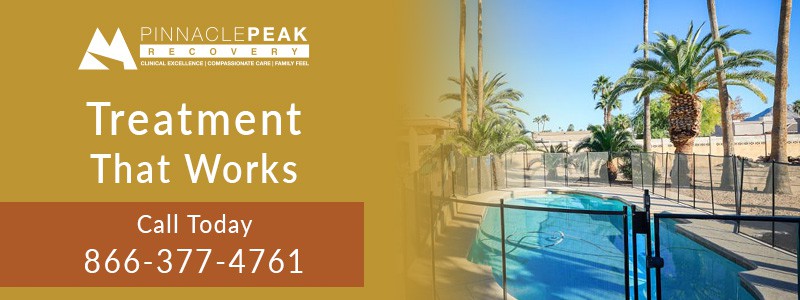Jumping every time the phone rings after eight, because after eight it’s always bad news. Breathing a sigh of relief, while feeling guilty and angry every time your loved one shows up on your doorstep. One, because you know they’re alive now. But 2, because you also know they’re only there for a “little loan to help out”... And you know you’re going to give it to them.
These signs indicate that your loved one has gone down a dangerous path of abusing drugs or alcohol, and you probably don’t know the best way to handle it. Maybe you should help your child pay for their bills because they no longer have a job, and you don’t want them to be homeless. Or after your loved one gets yet another DUI, you could pay for a lawyer because you don’t want them to go to jail and lose their job. You’re just helping your loved one, right?
Not necessarily. Although you may think that helping your loved one in ways like these will only prevent them from damaging their life even more, it may just be enabling their behavior. Not letting your loved one face responsibility for their actions can fall into the realm of not allowing them to grow and start their journey towards recovery.
We understand the reasoning for enabling behavior. You have good intentions, and just want what’s best for your loved one and to protect them from dangerous situations. However, you also don’t want to be a roadblock to their recovery. This can be a tough line to walk and it’s not always clear which direction to go in.
In the past few years, the rate of drug overdoses in Arizona has exceeded the national average; Arizona experienced a 16 percent increase in pharmaceutical opioid and benzodiazepine-related deaths between 2013 to 2014. In that same time period, heroin caused deaths jumped 44 percent. It’s clear that illicit drug use is a serious problem in Arizona, and enabling our loved ones who suffer with addiction will only allow these high rates of overdose and deaths to continue.
Let us help you through it and list a few ways you can help your loved one that’s not enabling behavior.
Enabling Can Encourage Toxic Behavior
- "If only I can keep this person going through their current crisis, it will buy us another day."
- "If I can’t change what they’ve done, at least I can help limit the damage of their actions."
- "Maybe my loved one will wake up and come to his or her senses. Maybe a real solution is waiting right around the next corner."
Have thoughts like these ever run through your head when you’re thinking of how to help your loved one? If they have, you’re more than likely enabling a loved one and justifying these actions. Although these actions are coming from a good place, it can be detrimental to those involved...
When someone is in the throes of an addiction or another pattern of highly dysfunctional behavior, they begin to depend on their available resources. Users often don’t make the connection between their actions and consequences or negative outcomes. Your loved one may even start holding their enabling family members in "emotional hostage" to sustain this trend. They can learn to manipulate their enablers to ensure that they continue to receive assistance and support.
This basically means your loved one is participating in manipulative behavior to get what they want. The point is to make you feel fear, anger, or guilt so that they can have things their way.
Being an emotional hostage can and will take its toll on a person. Relationships will suffer, and it’s highly likely that your emotional wellbeing will suffer. It can be traumatizing to go through something like this but know that you are not alone.
There are many different options to deal with being an emotional hostage in a healthy way, such as seeking therapy, going to a support group, and seeking support from friends and family.
This is essentially a lose-lose situation. Your loved one isn’t getting the help they need because they’re not taking responsibility for their behavior. The family member engaging in enabling behavior only loses here too, in many different ways. They will continue to worry about their loved ones endlessly even though they are being taken advantage of.
Enabling Can Delay Addiction Treatment
According to a report published by The National Center on Addiction and Substance Use at Columbia University, just about 1 in 10 people with a substance use disorder will receive any type of care for their condition.
In Arizona, this is a very big problem. In 2018, the drug deaths per 100,000 in the United States topped out at 16.9. In Arizona, the number of deaths per 100,000 was 19.5. The percentage of adults that drank excessively was 16.7%, which earned us the rank of 12 in the nation.
The longer a family supports them in their use, the greater the probability that they will never undergo substance use treatment. In other cases, family relationships become so toxic that loved ones have little room for a safe, productive conversation. Time is short for families to stop enabling their loved ones to get proper help.
You have to understand that while your empowering actions come from a place of love, enabling is at best an inefficient way to solve problems, and at worst, toxic to everyone involved. You could buy another day or stop another crisis, but in the end, the real solution is only postponed.
What Can I Do To Stop Enabling?
If you can’t help your loved one with their finances, avoid them getting fired or being sent to jail… how else can you help?
The key to breaking this enabling cycle is to give responsibility back to your loved one. It means setting boundaries between you and your loved one. You can no longer try to take responsibility for the actions of anyone else but your own. The outcomes and consequences of your loved one’s actions and behavior, however, belong to them alone.
Whenever someone stops enabling their loved one, it’s very easy to take the blame, or to feel like you aren’t doing your job as a parent, spouse, etc. The truth is, there are many other ways to help a loved one struggling with addiction that’s not enabling. Here are some do’s and don’ts of how you should treat your loved one.
Don’t:
- Provide a "safety net" that allows your loved one to not face consequences for their actions. This can include bailing them out of jail or giving them money.
- Make excuses, cover-up, or lie for your loved one. For example, if you call your loved one’s boss and say: "Sorry, he can't come into work today, he has picked up some kind of flu bug." when in reality he’s just too hungover or drunk to go to work. Again, actions like these will not allow them to face the consequences they need to deal with. You might say, "But, he could lose his job!" Losing his job might just be the thing that needs to happen for him to decide to get help.
- Take on responsibilities or duties that rightfully belong to your loved one. Would you do some of the things that your loved one used to do around the house? Have you resumed the parental responsibilities that the two of you used to share with your children? If you're doing something they would do if they were sober, you're encouraging them to escape their responsibilities.
Do:
- Set boundaries between you and your loved one. For example, saying, "I will not have drinking in my home" is setting a boundary. You can't control whether someone quits drinking or not, but you can decide what kind of behavior you will accept or not accept in your life.
- Encourage their journey towards recovery and practice behaviors that are beneficial for your loved one. For example, if they have lost their license, you could give them rides to their AA meetings, appointments with a therapist, or to a job interview.
- Encourage your loved one to receive addiction treatment at a rehab. If you think this is truly what’s best for them, and they are willing, this could be the step that changes their lives forever.
Where Your Loved One Can Seek An Alcohol and Drug Addiction Treatment
If your loved one has been struggling with addiction, Pinnacle Peak can help. Here at Pinnacle Peak Recovery, we provide a small, family-like environment for those seeking recovery from addiction During their time in our program, clients will learn how to stay sober and rebuild a life that’s worth living.
Some of the various addiction treatment programs we offer here include the following:
- Inpatient drug rehab
- Partial hospitalization program
- Intensive outpatient program
- Strong alumni community
Call Pinnacle Peak Recovery today at 866-377-4761 to help your loved one receive the treatment they deserve.


